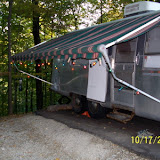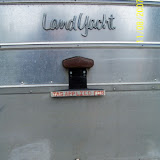Second Sunday of Advent
December 9, 2007
Ps. 72:1-7, 18-19; Isaiah 11:1-10; Romans 15:4-13; Matthew 3:1-12
Tuesday, December 4, 2007, 1:00 p.m.
Christian Theological Seminary
Chapel Service
Anne G. McWilliams, Ph.D.
Here in the seminary, it comes as no surprise when I say that the preacher’s task sometimes is hard. Every day that you rise from the congregation to preach, you want to bring God’s words to the people. You want to discern what we need to hear today.
Sometimes the lectionary seems like no help at all. Sometimes it is hard to tell why the lectionary provides all of the texts for a Sunday or a daily observance of the hours, in each of the scripture categories of Hebrew Bible, Psalms, Epistle, and Gospel. Sometimes they don’t hold together at all. Sometimes it seems like the only purpose in a given series of readings is to somewhat consistently lead those who want it through a faithful reading of their Bibles.
But, on these Sundays of Advent, the lectionary is very cooperative, solicitious, and helpful. Today’s texts for the Second Sunday of Advent all point to the future, to the eschatological vision of the reign of God, and to the qualities of peace and harmony among God’s people. Each of these passages sets us up for mending the splits, unifying the polarities, a return to Eden, Paradise, lions and lambs, red states and blue states together, under a ruler who resembles the perfection and the best of all that is good about God and persons in the best of all possible worlds.
Historically, these passages have been used by the Christian community to make several points at once. One idea is that the Old Testament is just theatrical foreshadowing in Christian history culminating in the coming of Jesus. It’s kind of like the Star Wars movies. You see the first film and live for twenty years in the simple awareness of the unlikely adolescent conquering hero, Luke Skywalker, until you see the prequel and learn that he was not the only unlikely hero, nor the most handsome one.
Isaiah’s text is one of those favored prequel passages of the Hebrew Bible. This passage foretells the perfect ruler, whose coming we anticipate, placing ourselves, by use of our imaginations and suspension of time and disbelief, eight centuries before the events of the Christmas story. We are supposed to see in Isaiah’s words the hope that is to come, while we, sitting in our pews 2800 years later, can be smugly satisfied, knowing that all of these absolutely perfect conditions and qualities have been fulfilled by our Jesus, our Christ. This is the snow-covered good, happy picture, so we can sing, “Come, Thou Long-Expected Jesus,” and know that this story is complete.
But, is this story complete? I don’t know about you, but I’m not sitting so comfortably with Isaiah: The Prequel today. Something is scratching at the back door of my consciousness as I hear this prophetic description. I think it’s because I have let the Psalm for today reach over and stick its elbow into the rib of this 8th century prophecy. The Psalm says, and I paraphrase: God, send us a leader, one who reminds us of you. Send us the one who leads with the kind of justice that you love, not the one we actually have now.
Isaiah’s word comes to us after a period of history that, if we try, we can understand pretty well from current events in which we are implicated. The people of Judah have been through horrific war and occupation by a cruel conqueror. They have been devastated, almost wiped out. If I use the word “decimated,” I would have to alter the definition from killing one out of every ten to only one out of ten left standing. I would almost describe it as an ethnic cleansing. It’s my interpretation of what leads up to this 11th chapter, this gloriously hopeful vision of the restoration of Judah.
Chapter 11’s vision of a future realm of the perfect Godly leader comes after the image of a wiped-out clear-cut vineyard. This destruction of Judah seemed to destroy God’s promise to make Abraham’s offspring more numerous than the stars of the sky or the sands of the oceans and deserts of the earth.
I know something about clear-cutting. It’s not a pretty picture. To tell you the truth, I was just responsible for clear-cutting 80 acres of land in my home county in Alabama. When the job was finished, the forester told me that the land looked like a bomb went off. Tree tops lay in a chaotic mess. There is nothing remaining of the pines, oaks, poplars, and cedars that grew up over fallow pasture land over the past fifty years or so.
If you are into conservation and ecology, I understand if you’re a little angry with me right now, especially if I told you that I intended to leave the land in that state of waste. You would not be the only one. The caretaker who hunts the land was furious because deer season was coming and his stands overlook the margins of the timberland.
But, here’s the rest of the story that I hope will save my reputation. Workers are coming in after the winter freezes. They will bring backhoes and bulldozers and pile the debris up, set fire to them, and reduce them to ashes. They will bring in seedlings and special tools and they will plant new trees, one by one. Over time, a new forest will grow. Every ten years or so, we will thin some of the trees to give the strongest trees the best chance to grow healthy. Maybe I will live long enough to see the fullness of the mature trees. Some day, in a few decades, it will be someone else’s turn to repeat the cycle, and take over this sustainable forestry plan – or, more likely, build some houses and condos.
The caretaker told me in an email over the weekend that the deer have returned and are using the same pathways they used when the timber was standing. Even the hunters are hopeful after the destruction of their playground. Good news, but not for the deer.
Isaiah’s prophecy of the recovery of Judah is restoration of the wasteland. In Isaiah’s story, the apparently dead vines are going to send out shoots on their own, and out of the wasteland, Judah will be restored. What an image!
Not only will the nation return to its glorious state of population, but out of the wasted people, God will bring forth a leader from the people, a descendant of David, not another foreign ruler.
Historically, we are told that this story was fulfilled already in history, 2800 years ago, in the reign of Josiah, a king from the lineage of David. And, to add even more drama and texture to the story, Josiah was just a child, maybe seven years old – a little child will lead them. Christian tradition uses this story of Isaiah’s account of Judah’s restoration and the reign of Josiah to foreshadow the coming of the Messiah, in the person of Jesus – the Christ.
Now, still, at least one more piece of this story is tugging on the edge of discomfort in my mind this Advent season. I just have to say, Come on! Isaiah’s vision is just too good to be true. It’s far too perfect to be believed. Can there be such a time of peace, harmony, and justice as Isaiah describes – now, 2007? I am pretty sure I pay taxes that enable a powerful nation to make wastelands of other nations.
From where I stand, looking at this story, and hearing about God’s heart being with the poor and helpless of the world, I have to tell you, it does not look good for those who abuse power and ignore the poor. I don’t see much hope in our current leaders using their gifts for sustainable practices of empowerment and restoration with the poor and the weak in the world instead of pursuing our unquenchable thirst for more oil, more control, more might.
But, just because the vision is too good to be true, we still should not leave this vision with Isaiah and Josiah back in the 8th century BCE. Nor does Isaiah’s eschatological vision end with the birth of Jesus Christ. Isaiah’s vision of God’s leader for God’s people comes forward to us and with us today.
This leader we seek is not coming from somewhere outside of our awareness, waiting to spring into our lives like an instant savior. I’m afraid the work is much more difficult than that, yet its reward is as rich and more joyful than Christmas. The call for justice and healing of this world begins inside of each one of us. Psychologically and theologically, we can let God’s leader be born in us beginning with this season. Here is my Advent challenge to you and me today: become the leader you seek.
Tuesday, December 4, 2007
Sermon for the Second Sunday of Advent
Labels:
Advent,
clear-cutting timber,
Isaiah,
justice,
leadership,
power,
powerless,
sustainable forestry,
the poor
Subscribe to:
Post Comments (Atom)


No comments:
Post a Comment
Welcome to my blog. I welcome your comments!